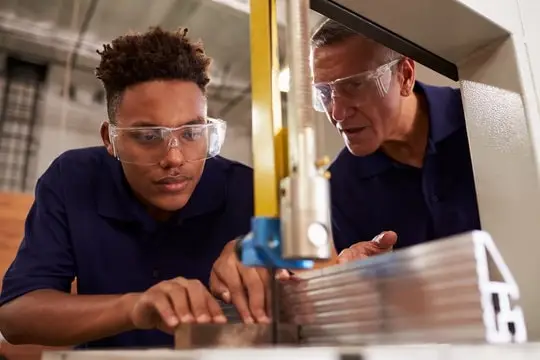e ngineering
a brighter future
fun fact
CRUISE CONTROL WAS INVENTED BY BLIND MECHANICAL ENGINEER RALPH TEETOR
Job Prospects

4year
APPRENTICESHIP
$90K
AVERAGE ANNUAL SALARY* FOR QUALIFIED MECHANICAL ENGINEERS
*careers.govt.nz
Mechanical engineering, the heart of innovation, is booming in 2025 as a lively and constantly evolving field. It’s all about using science and creativity to design, build, and maintain mechanical systems, solving problems along the way. From developing sustainable energy solutions like wind turbines and solar panels to pushing the boundaries of robotics and automation, mechanical engineers are at the forefront of technological advancements.
At ATNZ, our programmes and courses are designed to prepare you for a career as a qualified tradesperson in mechanical engineering. We offer specialised training in various areas, including Fitting and Machining, General Engineering, Maintenance Engineering, Metal Forming (Casting), Toolmaking, and the fundamentals of Fluid Power Engineering. These qualifications serve as an excellent foundation for further studies in mechanical engineering.
Mechanical engineers are integral to nearly every aspect of modern life, from improving healthcare with innovative medical devices to designing safer and more fuel-efficient vehicles. In New Zealand, mechanical engineers significantly contribute to the country’s growth by enhancing productivity, fostering technological advancements, and supporting sustainable development.
Recent statistics show that mechanical engineers have a median annual wage of approximately $90,160, highlighting their essential role in various industries. Employment opportunities for mechanical engineers are expected to grow by 4% from 2022 to 2032, resulting in the creation of over 12,000 new jobs in the economy. By enrolling in our comprehensive training and engineering apprenticeships at ATNZ, you can become a qualified tradesperson in mechanical engineering. This path offers excellent job prospects, competitive salaries, and the chance to make a meaningful impact on society. Additionally, you will have opportunities for further study in mechanical engineering.

Chat with us about engineering apprenticeships, industry training programmes and specialised short courses: Whether you’re looking to start your journey to becoming a qualified mechanical engineer, host an ATNZ apprentice, or train your team through our top-tier engineering programmes, our team is here to guide you every step of the way.
Our Level 4 Mechanical Engineering Apprenticeship offers comprehensive training for aspiring engineers. The general engineering strand teaches broad skills and knowledge in welding, fabrication, machining, and fitting. This programme prepares you for a variety of tasks, including fitting and assembly, machine shop operations, service and repair, manufacturing, and general fabrication of machines and equipment, with a focus on hydraulics and pneumatics.

Upon completion of the general engineering apprenticeship, you’ll be qualified for various career paths, including:
To enroll in our apprenticeship programme, you must meet the following criteria:


MECHANICAL
ENGINEERING

ENGINEERING
FABRICATION

REFRIGERATION AND
AIR CONDITIONING

MECHANICAL BUILDING
SERVICES
ATNZ delivers the New Zealand Certificate in Mechanical Engineering (Advanced) Level 5. This programme aims to develop highly skilled tradespeople with advanced technical skills and supervisory capabilities. It prepares graduates to significantly contribute to business success and competitiveness in mechanical engineering, construction, manufacturing, fabrication, refrigeration, air conditioning, and mechanical building services.
ATNZ offers comprehensive mechanical engineering apprenticeships that equip you with the practical skills and theoretical knowledge needed to excel in this dynamic field. Our apprenticeships provide hands-on experience under the guidance of seasoned professionals, ensuring you gain real-world expertise while you learn. Our structured programmes cover various aspects of mechanical engineering, from design and manufacturing to maintenance and quality control.
In addition to apprenticeships ATNZ provides NZQA-approved programmes in welding, fluid power and mechanical engineering. Additional programmes and non-credentialled training will be released soon. ATNZ is a responsive training provider. If any business requires specialist training to be developed to meet their individual needs please talk to us.
Choosing ATNZ means choosing a pathway to success. Our focused and supportive approach ensures that learners receive the highest quality training. With a strong network of industry partners and a proven track record, ATNZ stands out as a great solution for those aspiring to enter the field of mechanical engineering. Our apprentices consistently achieve higher completion rates compared to non-ATNZ apprentices.
Companies engaging with ATNZ often report significant positive effects on their revenue, cost-effectiveness, compliance, sustainability, innovation, health and safety, enhancing their recruitment pipeline, employee satisfaction, and retention. By investing in apprenticeships, companies can develop a skilled workforce that meets their specific needs and drives their business forward.
We understand the importance of support and mentorship in a learner’s journey. Each learner is paired with a dedicated Account Manager who provides guidance, mentorship, and regular check-ins. Our Account Managers have extensive experience in the industry and started their careers as apprentices themselves. They are committed to helping learners succeed and are there for support every step of the way.
Mechanical engineering technicians support engineers by assisting in the design, development, and testing of mechanical systems and machines. They play a crucial role in ensuring that projects run efficiently and meet industry standards.
The ATNZ programme offers a comprehensive overview of mechanical engineering, combining theoretical knowledge with practical experience. This structure ensures that apprentices gain the skills needed to succeed in the industry.
Yes, students must be New Zealand Citizens or Permanent Residents and at least 16 years old. While it’s not mandatory, having the National Certificate in Educational Achievement (NCEA) Level 2 is recommended.
ATNZ is committed to supporting Māori students by providing tailored resources and guidance. We work closely with Māori communities to encourage participation in engineering trades and ensure a supportive learning environment.
Graduates can pursue careers as general engineers, specialist engineers, engineering technicians, or supervisors in various fields, including energy, manufacturing, and construction.
Our apprenticeship programmes are available NZ wide, including regions like Manukau. This ensures accessibility for students across the country.
Your learning journey with ATNZ is flexible and tailored to your needs. You can choose from workplace-based, online, and self-study options to fit your schedule and career goals.
ATNZ provides robust support through dedicated Account Managers, regular check-ins, and mentorship. We ensure that apprentices have the guidance they need to succeed.
We keep our apprentices and partners informed about the latest industry news and trends. This helps ensure our training programmes remain relevant and up-to-date with current industry standards.
Our programme includes hands-on training with state-of-the-art machines and tools, ensuring that apprentices gain real-world experience in a practical setting.
Yes, we offer a talent centre that helps match graduates with potential employers. This service helps bridge the gap between completing your training and starting your career.
Mechanical engineering technicians work on a variety of projects, from designing and testing new machines to maintaining and improving existing systems. Their work is critical in sectors like energy, manufacturing, and construction.

In mechanical engineering, a bush, or bushing, is a cylindrical lining designed to reduce friction and wear within a hole, often acting as a spacer, guide, or bearing. These components provide a smooth surface for rotating or sliding parts in machinery and equipment, enhancing performance and longevity.
Typically made from materials such as metal, plastic, or rubber, bushes are also designed to absorb vibrations and reduce noise. At ATNZ, our comprehensive apprenticeship programs equip you with the skills and knowledge to understand and work with these essential components.
Courses such as Fitting and Machining, General Engineering, Machining, Maintenance Engineering, Metal Forming (casting), and Toolmaking all include practical training on the use and maintenance of bushes, ensuring our apprentices are well-prepared to tackle real-world engineering challenges.
Our programs not only focus on the theoretical aspects but also provide hands-on experience, making sure you understand the critical role of bushes in various applications, from automotive suspension systems to industrial machinery and household appliances.


Bushes are widely used in applications requiring durability and precision, such as automotive suspension systems, industrial machinery, and household appliances. They help reduce wear and tear, minimize maintenance requirements, and extend the lifespan of equipment. Proper selection and maintenance of bushes are crucial for ensuring optimal performance and reliability.
At ATNZ, we emphasize the importance of these components in our specialized training courses and fitting & machining apprenticeship. For instance, the Fluid Power Engineering Fundamentals – Level 3 course covers the integration of bushes in hydraulic and pneumatic systems, while the Precision Measurement and Quality Control in Machining short course ensures that bushes meet stringent quality standards.
By providing a robust educational foundation and practical experience, ATNZ prepares its apprentices to excel in the mechanical engineering field, ensuring they can effectively contribute to maintaining and innovating mechanical systems in their future careers. With our targeted training programs, apprentices gain a comprehensive understanding of the various types of bushes, including plain, flanged, spherical, and split bushes, and their applications, making them invaluable assets to any engineering team.
